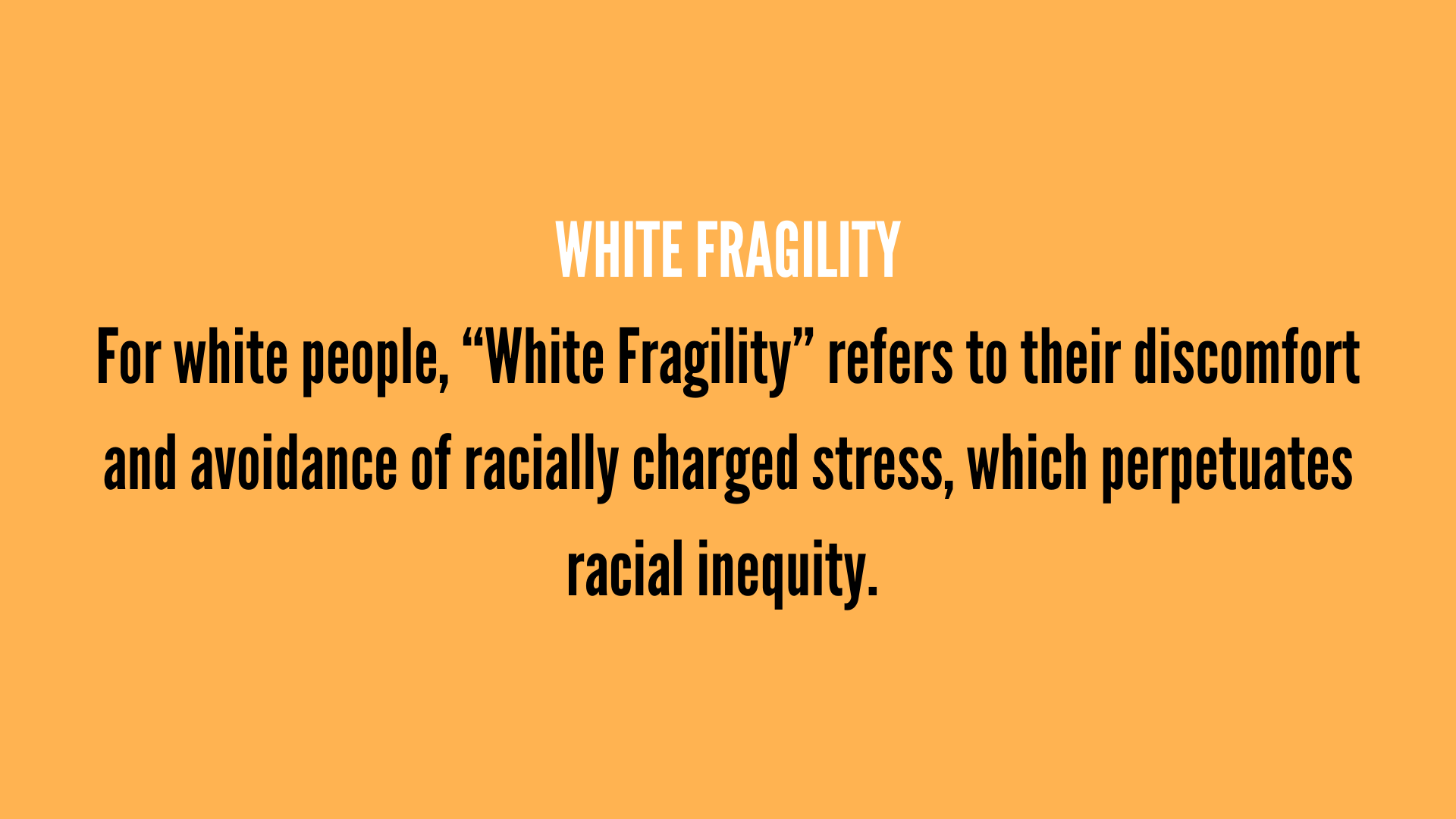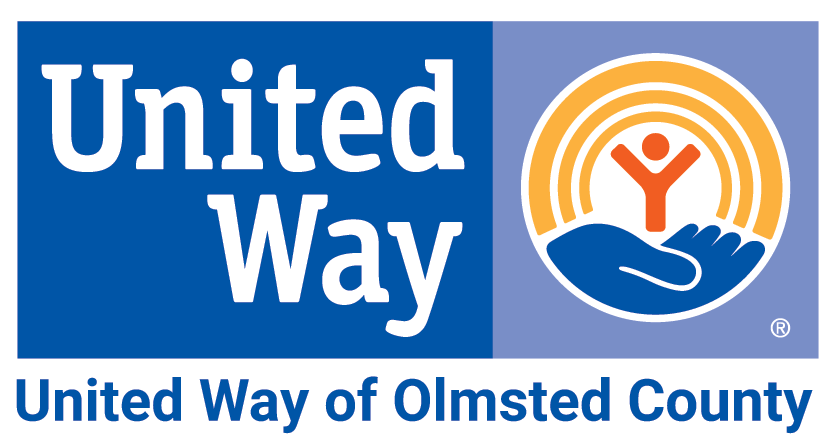.png)
Monday, January 10
“Not seeing race does little to deconstruct racist structures or materially improve the conditions which people of colour are subject to daily. In order to dismantle unjust, racist structures, we must see race.” - Reni Eddo-Lodge |
Have you heard of the term “White Fragility?”

Many people of color, multiracial, and Indigenous people are familiar with this concept but may not be familiar with the term.
Dr. Robin DiAngelo describes white fragility as a state of being for white people in which even a minimum amount of racial stress becomes intolerable, triggering a range of defensive moves. These moves can include the outward display of emotions such as anger, fear, and guilt, and behaviors such as argumentation, silence, and leaving the stress-inducing situation. These behaviors shut down conversations and inhibit actions which, in turn, function to reinstate white racial equilibrium.
We commend you for completing the first week of the 21-Day Equity Challenge.
We know that talking about topics like race can feel challenging, especially with those closest to us-- extended family dinner, anyone? But try it out this weekend or join us for an upcoming community conversation.
Below are tools to empower you to spark a conversation.
Today's Challenge: Do one or more of the following...
OPTION 1: Watch PBS KIDS Talk About: Race, Racism, and Identity (11:07), where real families sat down to have honest, age-appropriate conversations about these important topics and offer viewers ideas to build on as they have similar conversations at home.
OPTION 2: Listen to Scene On Radio’s podcast series Seeing White, which aims to discuss racism by looking into the history of how the concept of "whiteness" came to be.
OPTION 3: Listen to “Lean Into Discomfort When Talking About Race”, a 10-min article from Tonya Mosley. Then, explore the new web portal Talking About Race from The National Museum of African American History and Culture that's meant to spark discussion, community building, and self-care after the murder of George Floyd at the hands of police.
OPTION 4: Read AARP’s How to Have a Respectful Conversation about Racial Justice, which describes seven expert tips on approaching difficult or uncomfortable conversations.
OPTION 5: Review this list of 28 common racist attitudes and behaviors from Community Anti-Racism Education Initiative that indicate a detour or wrong turn into white guilt, denial, or defensiveness.
OPTION 6: Practice these conversations (virtually) with your community! Share your personal reflections on the levels of racism, privilege, biases, and any other content from the Challenge with others. Join us for our Community Conversation #1 (Friday, January 21 from noon-1:00 p.m.) or Community Conversation #2 (Monday, January 31 from noon-1:00 p.m.). Follow the links to learn more and register (space is limited).
